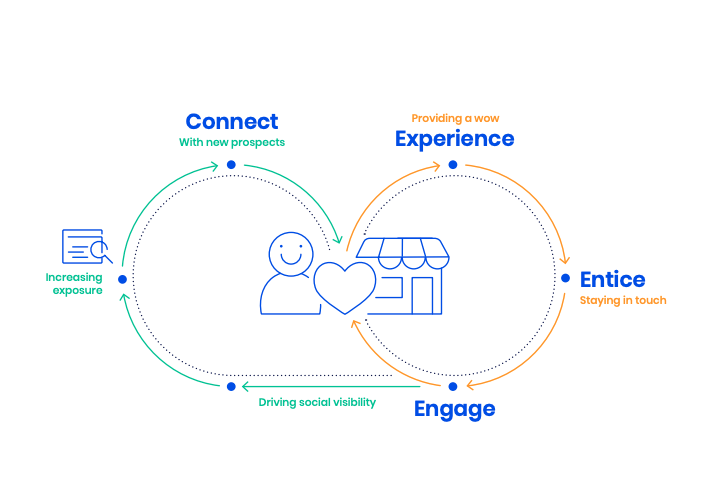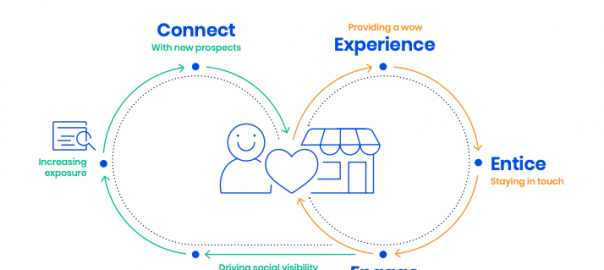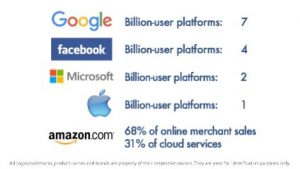Client referrals come from current clients who are so impressed with your services that they suggest your business to friends and family.
Referrals happen through word of mouth. And, because referred leads are coming to you from current, happy, clients, they’re almost guaranteed to turn into new clients. Saving you both time and money.
A high-quality customer referral program will get you more qualified leads, more customers, and, ultimately, more profits. If you want to know how to get more client referrals for your consulting business, read on.
Why client referrals matter for your business
Client referrals matter for two big reasons: they show that your current clients trust and respect you, and they save you a lot of money on marketing. When you have a satisfied client, you can ask them to refer you to others, helping you to land additional clients.
What is a client referral program?
A client referral program is a process of asking current clients to refer you, and your services, to others. The program may be free — without any strings attached — or you may want to offer an incentive for referrals. Either way, to get more referrals, you’ll need to reach out to your current clients to ask if they know anyone who would be interested in your services. This is a huge part of marketing your business.
How it works
When your current customers vouch for you, they provide “social proof” that you’re a legitimate business offering great services. When those new referrals become clients on their own, they then they in-turn vouch for you and your services as well. And, if done well, it becomes a snowball effect.
Being proactive with your client referral program, by touching base with your client when one of their referrals enlists your services, gives you an excellent way to stay in touch with your current customers while expanding your reach at the same time.

Referral programs are the best kind of social advertising. And, if done right, it can create a snowball effect, growing your business with each satisfied client
What you need to start a referral program
If you want to roll out a referral program, you’ll need two things: clients who are ready and willing to spread the word, and the right information for them to share. A simple way is to ask a current client if they can suggest someone for you to contact, and they connect your business with their friends and family.
This is a great way to get leads because it requires very little effort from you, and a satisfied customer is usually considered the most trust-worthy type of reference.
It’s wise to not ask your client to explain the nuances of your business, though. You should simply ask your client to voice support, tell their network how the services benefited them, and how they were treated. However, you can provide something for them to show their network. This may be a block of text, a business description, or a work sample. In this way, you convey the information you need a potential customer to know and your current client vouches for you at the same time.
Where to ask for referrals
There are many places to ask for referrals. Don’t be shy about using your networks and reaching out. Businesses thrive on support, and asking your clients to extend that support is commonplace.
Send an email to your customers.
If you have a mailing list, you can send a message asking for referrals. This can be included in your monthly newsletter, or it could be a separate email purely focused on referrals.
Put information about referrals on your website.
Your company’s website can have a section that discusses referrals. You can explain how they work, why people should refer others to your business, answer key questions, and more. A dedicated space for referrals is the perfect spot to place the sample or template you’d like clients to send when they make a referral.
Take to social media.
If you already have a business social media account — and you should — send out a quick message to your followers. Explain that you’re looking for referrals from loyal customers and attach the sample, block of text, or template. You can keep a pinned post at the top of your feed, put a link in your bio, and more.
Make referrals a regular part of your process.
If your business is successful, you likely have a positive process that doesn’t have many bumps. From your regular marketing efforts to smart website SEO for consultants to running your social media accounts, you likely already have a lot working in your favor.
But if asking for referrals isn’t already part of your process, you’re overlooking a simple and fruitful step. When you close a deal with someone, remind them that they can refer their friends if they appreciated your services.
How and when to ask for referrals
Getting referrals all boils down to knowing how and when — and who — to ask.
You can gently ask your current customers if they can refer you to a friend or family member, but never be pushy. You can remind them that your business runs thanks to great clients like them, and you’d appreciate their support in spreading the word.
The timing also matters when it comes to referrals. You certainly should never ask before the service is successfully completed. If you ask too early, your customer might feel like they’re being overlooked or that they’re simply being used if your attention’s already on getting the next client. The best time to ask for a referral is after you close the deal and the customer has shown that they’re satisfied with your services.
You should not ask for a referral, though, if your client had a negative experience or wasn’t satisfied with the services. They may take offense to the request and actively speak out against your company. Instead, strive to satisfy customers so that your requests are timely and in good faith.
How to incentivize clients to make referrals
You don’t necessarily need to pay your current customers to make a referral. In their eyes, they’re helping someone they care about by pointing them in the direction of a legitimate and trusted business. But many customers don’t make referrals unless they get something out of it. That’s why companies often offer rewards programs, special packages, discounts, and cash incentives for successful referrals.
Many small businesses will give you a free item when you make a referral, and some even have continuous rewards for numerous referrals. However, the incentive shouldn’t be worth more than the business you get from the referral, or you’ll end up losing more than you gain. You also need to ensure that the referrals are successful — potential customers have to become clients. A referral without a purchase is just a view, after all.
How to turn a referral into a client
A new referral is known as a lead. To turn a lead into a client, you simply have to close the deal. The customer who referred the lead your way has already piqued their interest in your services. And thanks to the friend who referred them, your new lead is inclined to trust you. Simply present your services, outline prices, and answer questions, and you’re well on your way.
Growing your consulting business with a successful client referral program
Client referral programs can help your customer base remain loyal to your brand while helping you with a quick, low-cost way to grow your business in major ways. For more resources on setting up and maximizing the potential of referral programs, Constant Contact’s free resource The Download can help you make sense of online marketing for your consulting business.
Business & Finance Articles on Business 2 Community
(89)







